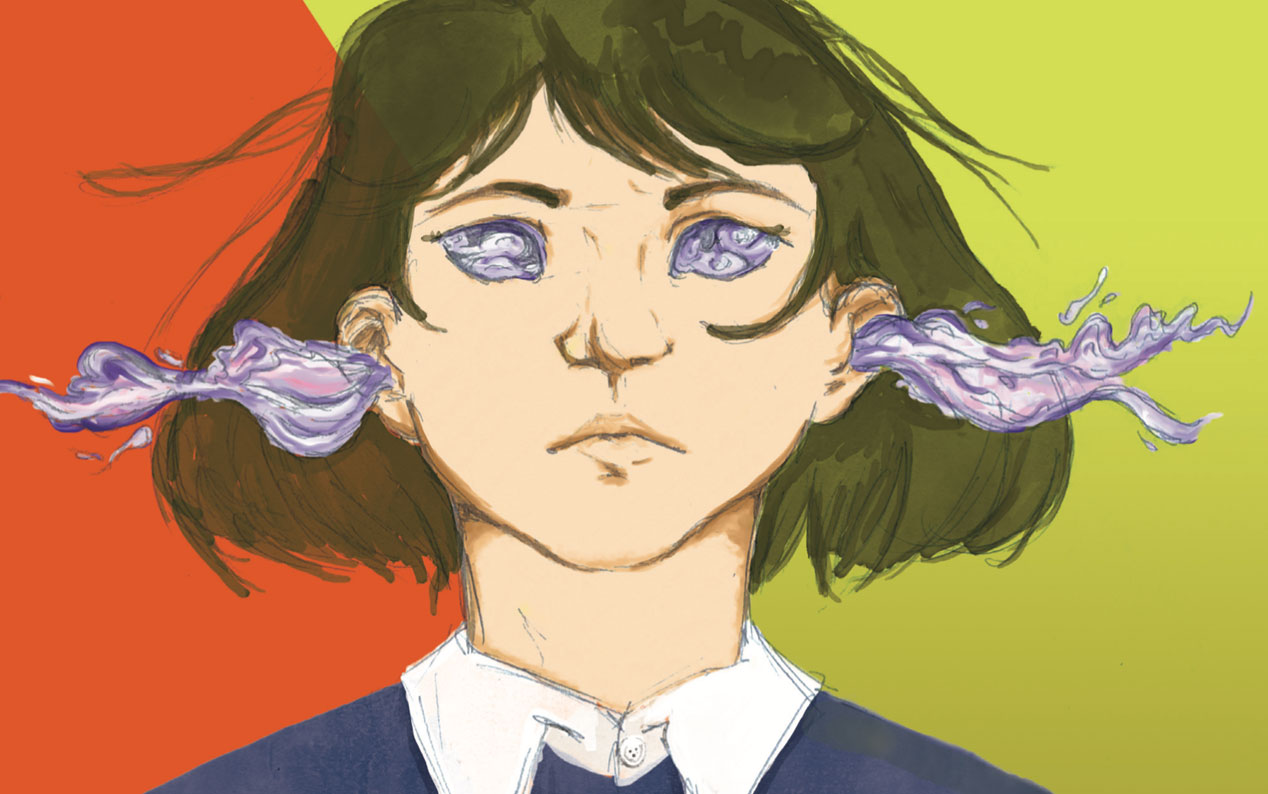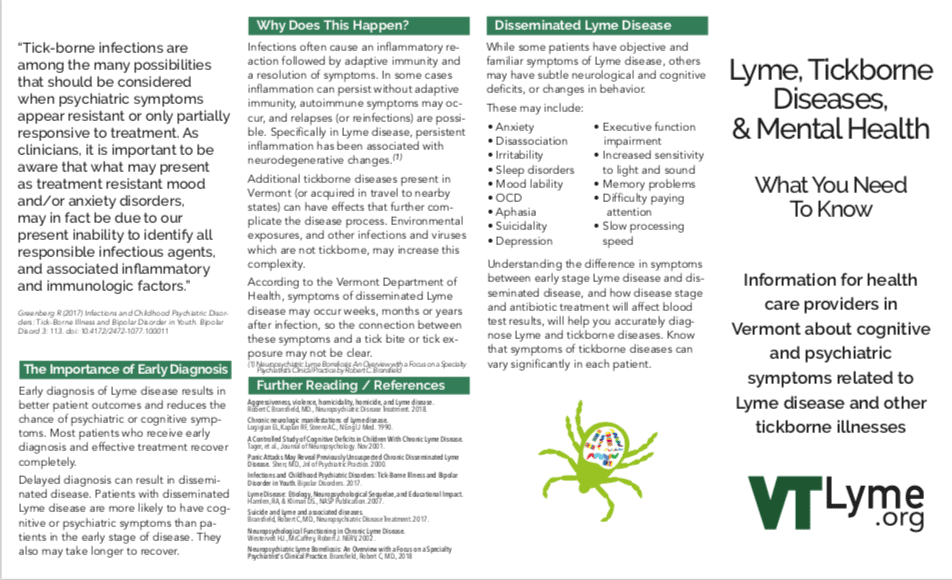
Lyme and tickborne diseases have been shown to affect mental health. Because of the extremely high incidence of these infections in our state VTLyme.org created a brochure for Vermont’s health care and mental health providers about the psychiatric and cognitive symptoms of tickborne illnesses.
Vermonters with tickborne diseases may be misdiagnosed as having mood or anxiety disorders, eating disorders, learning disabilities, dementia, or psychiatric illness. Some research has showed a possible connection between Lyme disease and suicidality.
Dr. Brian Fallon, director of the Lyme Disease Research Program at Columbia University, cites five questions that suggest warning signs of Lyme encephalopathy:
- Are there markers of non-psychiatric disease such as erythema migrans rash, arthralgias or arthritis, myalgias, headaches, sound or light sensitivity, paresthesias, tremors or twitching, cardiac palpitations, word-finding problems, short-term memory loss, cranial neuropathies, radicular or shooting pains?
- Is the psychiatric disorder atypical or unusual? For example, does a panic attack last longer than the expected 1/2 hour? Or is it a first ever panic attack at age 50?
- Is there poor or paradoxical response to psychotropic medications, or excessive side effects/sensitivity to these medications?
- Is this new-onset disease without psychological precipitants such as new stressors or secondary gain?
- Is there an absence of a personal history or family history of major psychiatric disturbances?
Neuropsychiatric symptoms of Lyme disease/Lyme encephalopathy**:
Mood and cognitive disturbances
Fatigue
Headaches
Sleep disorders
Cognitive difficulties
Slowed processing—visual and auditory
Attention problems
Visual-spatial difficulties—e.g. trouble finding things, getting lost
Auditory processing disorders
Visual processing disorders
Sensory integration disorders
Short-term and working memory difficulties
Word-finding, word generation and communication difficulties
Decline in executive functions—planning and organization
Confusion, decline in overall intellectual performance
Emotional/Behavioral Difficulties
Anxiety, often with panic attacks
Depression
Irritability/rage attacks/impulse dyscontrol/violent behavior/oppositional defiance disorder
Sleep disorders
Rapid mood swings that may mimic bipolarity (mania/depression)
Obsessive Compulsive disorder (OCD)
Hyperactivity
Autism Spectrum-like disorders
Antisocial disorders
Eating disorders
Vermonters with late-stage, disseminated Lyme and tickborne infections may present with a variety of neurological and psychiatric problems, ranging from mild to severe.
**Sourced from Psychiatric Lyme: What Every Mental Health Specialist Should Know About Lyme and Tick Borne Illness


